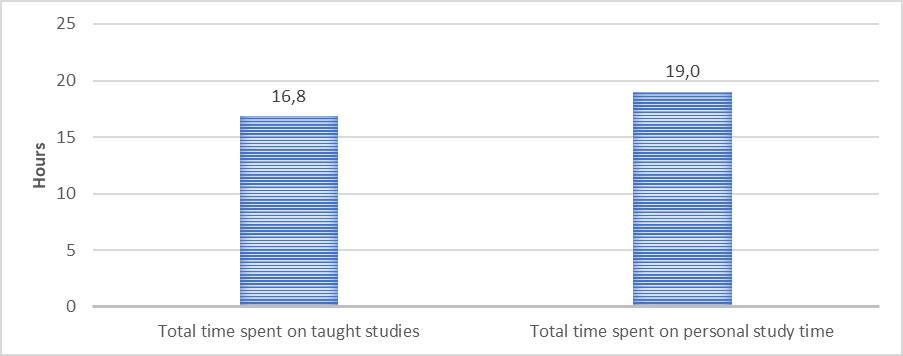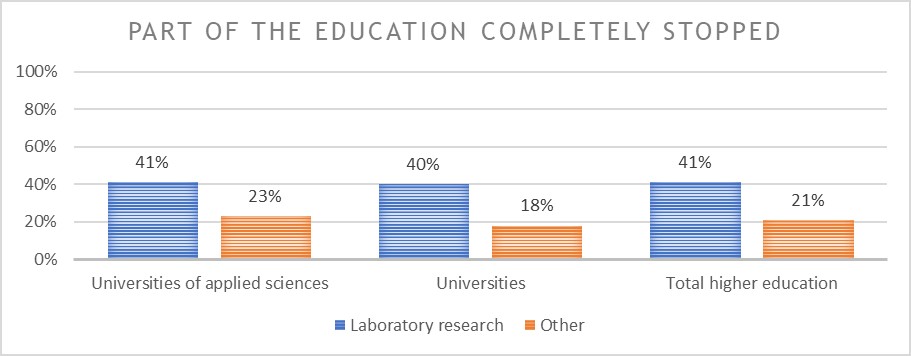How to study during the COVID-19 crisis?
By Kyra de Korte ResearchNed The Netherlands Dutch universities have come up with new ideas to support students with their studies during the COVID-19 crisis. These initiatives could be helpful! However, to use them, there must be sufficient digital resources available for every student.

____________________________________________________________________________________________________________________________________________
21% of Dutch students say that at least part of their semester is completely stopped/skipped due to the corona measures.
____________________________________________________________________________________________________________________________________________
Struggles with studying
Before the COVID-19 crisis, Dutch students spent about 36 hours on study related activities (figure 1) out of which 17 were spent on taught studies (lessons, seminars, labs, tests, live online courses of their study programme) and 19 on personal study time (preparation, studying, homework, unpaid internships).These numbers are very similar to the European average[1] although Dutch students spent a little more time on personal study time.


Keep on studying
Thus, it is not surprising that half of Dutch students face difficulties with their study progress[2]. In order to keep the study time as meaningful as possible, it is important that other study activities, like following online lectures, run smoothly. That is why various Dutch universities have started initiatives to support students such as online walk-in consultation hours. During these non-committal, online consultations at fixed times during the day, students are guided regarding their studies as well as counselled on overall time budget. Furthermore, many Dutch universities organize webinars on effective studying at home and offer distance training programs.
If students can use digital learning resources these initiatives could be helpful. However, that is not always the case. A quarter of Dutch students have inadequate facilities at home (Van den Broek & Warps, 2020). Students with a functional disability and students who do a lot of laboratory work have a higher chance to have inadequate facilities. Furthermore, students with wealthier parents have fewer problems with accessing digital learning resources. It is important that the government and/or universities make digital learning materials available for every student. This way, the time spent on studying is used as meaningfully as possible!
[1] Hauschildt, K., Vögtle, E. M., & Gwosć, C. (2018). Social and economic conditions of student life in Europe: Synopsis of Indicators. EUROSTUDENT VI 2016-2018. Bielefeld, Germany: W. Bertelsmann Verlag.
[2] Van den Broek & Warps (2020). Studeren, studievoortgang en welbevinden tijdens corona. Een studie in opdracht van het ISO. ResearchNed: Nijmegen.
